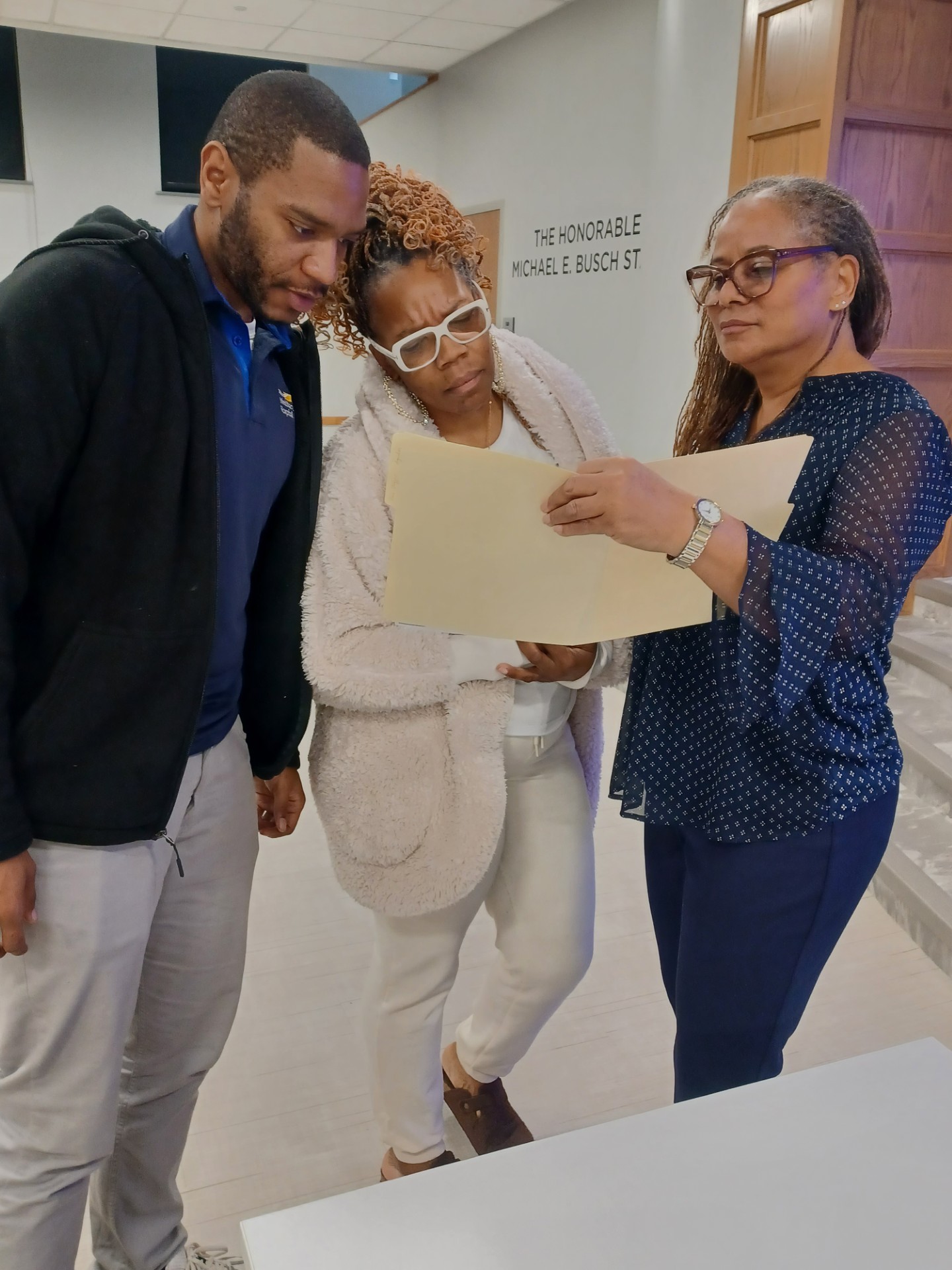Neighbors Learn About Opportunities to Become Community Health Workers
December 18, 2024 Lisa Rawlings
UMB Workforce Initiatives collaborates with the Central Maryland Area Health Education Center to host Community Health Worker training information sessions.
Photo: Central Maryland Area Health Education Center executive director Paula Blackwell (right) with attendees of the Community Health Worker information session.
UMB Workforce Initiatives collaborated with the Central Maryland Area Health Education Center (CMAHEC) to present an in-person information session about its Community Health Worker training on Tuesday, Dec. 17. The session, held at the UMB Community Engagement Center and led by CMAHEC executive director Paula Blackwell, saw over 20 community members attend.
For those who couldn't attend in person, a virtual session was held Thursday, Dec. 19, with over 100 participants.
The Central Maryland Area Health Education Center is actively seeking certified Community Health Workers (CHWs) for part-time positions. While their training is currently $1,400, CMAHED has found funding to cover the training cost of an upcoming Community Health Worker co-hort so this training would be free for eligible Baltimore City residents. UMB Workforce Initiatives’ information sessions are a fantastic opportunity to learn more about the role and learn how to enroll in training.
The Importance of Community Health Workers in Maryland
Community Health Workers (CHWs) play a crucial role in Maryland's health care system. They act as a bridge between health care providers and the community, helping to facilitate access to services and improve the quality and cultural competence of service delivery. CHWs are trusted members of the communities they serve, which allows them to effectively advocate for and support individuals in navigating the health care system.
In Maryland, CHWs are instrumental in increasing health knowledge and self-sufficiency through various activities such as outreach, community education, and social support. They help address health disparities by providing essential services to underserved populations, ensuring that everyone has access to the care they need.
Passed in 2018, the Maryland Community Health Worker Act established the State Community Health Worker Advisory Committee and set forth regulations for the certification of CHWs and the accreditation of CHW certification training programs. The Central Maryland Area Health Education Center was one of the first accredited programs established in the state.
As it has been implemented, the act has created pathways for health providers to charge for or be reimbursed for CHW services. This valuable role is key to improving public health outcomes and reducing health care disparities. By formalizing the role of CHWs, the act supports the integration of these vital workers into Maryland's health care system, enhancing their ability to serve communities effectively.
The Impact on Our Neighbors
Initiatives like this are vital for our community, especially for those living in targeted ZIP codes and Baltimore's west side neighborhoods. With 17 percent of registrants living in the target ZIP codes belonging to the Southwest Partnership neighborhoods and 38 percent coming from Baltimore's west side, this program directly impacts our neighbors by providing them with opportunities for professional development and employment.
By training and employing local residents as CHWs, we ensure that the people serving the community are those who understand its unique needs and challenges. This localized approach fosters trust and improves the effectiveness of health interventions. It also empowers residents by providing them with valuable skills and job opportunities, contributing to the overall economic and social well-being of the community.